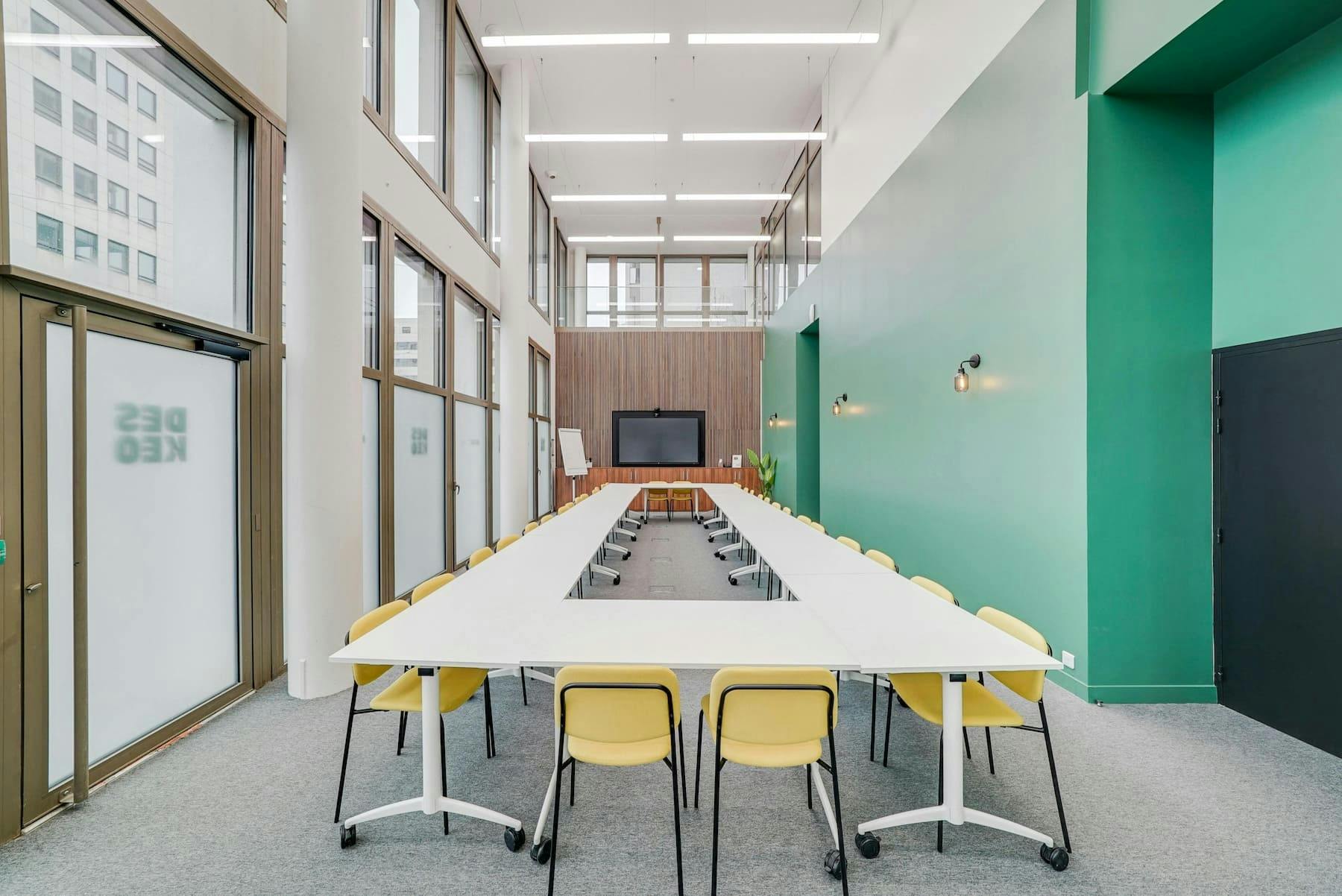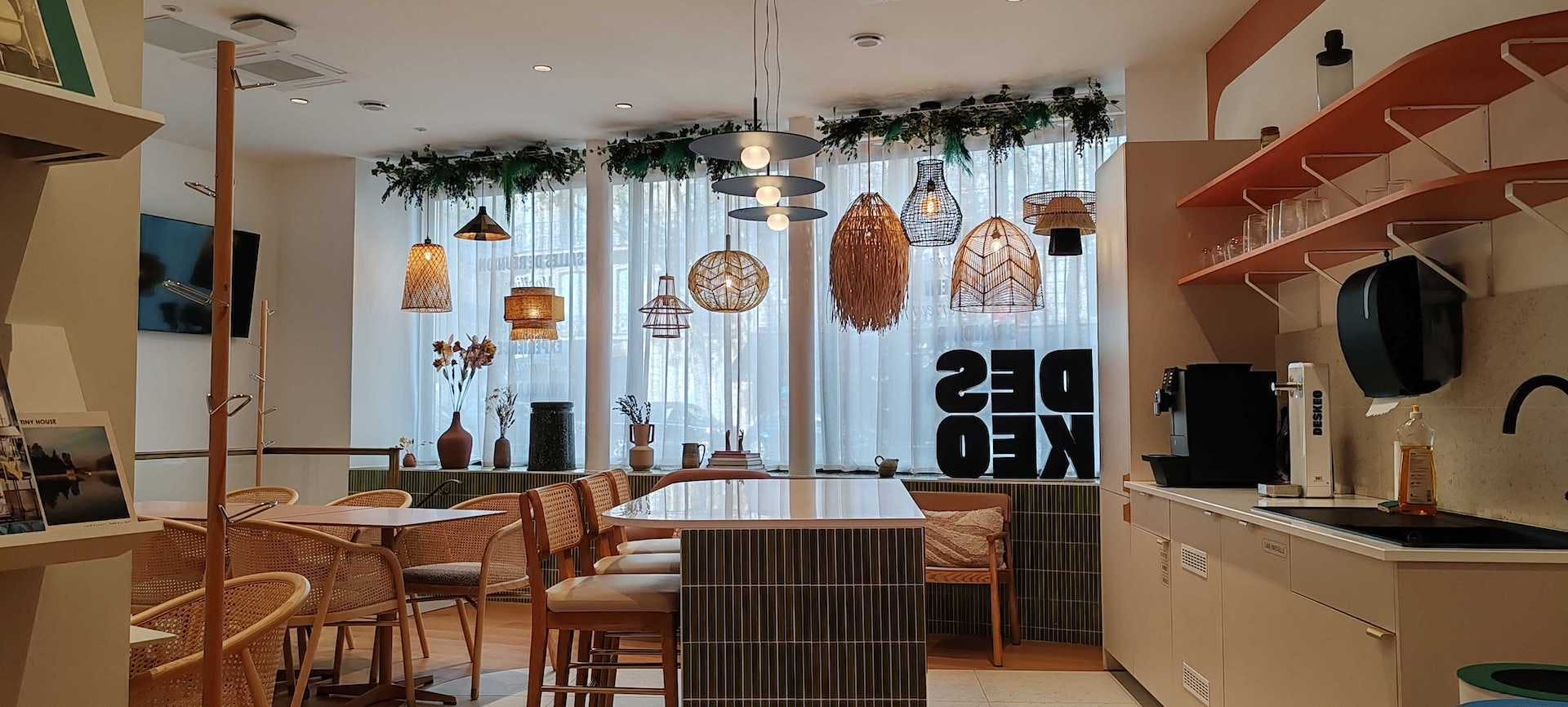

Work coffee break: Legislation and benefits
The coffee break is a moment of relaxation eagerly awaited by many as a welcome breath of fresh air in the workday. However, this brief interruption of work time can sometimes be a source of conflict in a company…
Yes, between legislation, compensation, and benefits, the coffee break holds some unsuspected subtleties that it is important to know to ensure that it benefits everyone.
Do you want to know if your employer complies with the legal framework for breaks and how to fully benefit from this social time? Deskeo provides an overview of all the subtleties of this relaxation moment to ensure that it remains so!
Work Break Regulations: What Does the Law Say?
Work breaks are a serious subject, governed by precise rules. Let's see what the law says to clarify things.
Legal Framework of Breaks in 2024
French legislation provides for a minimum right to a paid break for any employee working more than 6 consecutive hours in a single day. Specifically, Article L3121-16 of the Labor Code requires a break of at least 20 consecutive minutes when the daily working time exceeds 6 hours.
The employee can then attend to their personal matters and choose to use this break as they wish (lunch, smoking cigarettes, sleeping, etc.).
This rule applies in principle to all sectors of activity. However, a collective agreement or company agreement may provide for more favorable provisions, such as a longer or more frequent break.
Duration and Frequency of Coffee (or Smoking) Breaks: Employer's Discretion Criteria
Unlike the legal 20-minute break, the law does not specifically regulate the duration and frequency of coffee breaks. These depend on each employer's tolerance and are not mandatory.
However, many employers allow them more or less formally to allow their employees to take a breather. In some cases, these breaks may even depend on a framework set by a collective agreement or a company agreement.
But, generally speaking, remember that the duration and frequency of breaks are not subject to any legal standard. The employer remains free to grant them or not.
Integration of Breaks into Effective Working Time
While the 20-minute break is legally included in effective working time (Art. L3121-2 of the Labor Code) and must therefore be paid normally, this is generally not the case for coffee breaks or cigarette breaks.
Their compensation depends on the provisions provided by any collective agreement or company agreement. This means that, without specific provisions, coffee breaks do not count as effective working time and do not have to be paid by the employer.
Breaks, an Employee Right
As you may have understood, any employee working more than 6 consecutive hours is entitled to a break. If your employer does not grant it to you, they may be sanctioned.
Proof and Compensation for Breaks
In case of disagreement between an employer and an employee regarding compliance with regulatory break times, the burden of proof lies with the employer.
This means that it is up to the employer to precisely justify the hours worked by the employee and prove that they have indeed been granted a break of at least 20 consecutive minutes when their daily working time has exceeded 6 hours, as required by law.
If the employee provides evidence that they worked during all or part of their mandatory 20-minute break, this time must be reclassified as effective working time, entitling them to compensation.
Sanctions for Employer Non-Compliance
Failure by the employer to grant a 20-minute break after 6 hours of work may expose the company to sanctions.
The aggrieved employee can contact labor inspection or the labor court to assert their rights and obtain redress. But the sanction can go both ways...
In case of clear abuse by the employee regarding the duration or frequency of tolerated coffee breaks, the employer can sanction them with:
- a warning,
- a disciplinary suspension,
- or, in case of recurrence, dismissal for cause.
Employees as well as employers have an interest in finding the right balance because coffee breaks serve the interests of everyone.
Benefits of Coffee Breaks for Health and Productivity
A eagerly awaited moment of relaxation, the coffee break has numerous unsuspected benefits. In addition to its positive impact on employee well-being, it also influences their efficiency.
Advantages of Coffee Breaks for Employee Efficiency
Even though they are not regulated by law, coffee breaks bring tangible benefits to companies and employees. Employers, therefore, have every interest in granting them to their employees because:
- They improve employee efficiency. According to a study by MIT, employees who take breaks together are 10% more productive. The coffee break acts as a mental energy booster by maintaining attention and vigilance.
- It stimulates creativity and fosters the emergence of new ideas during informal exchanges.
- Health-wise, it reduces stress and eye fatigue related to screens. Taking a few minutes to relax allows employees to return to work more focused and effective.
But, more than productivity, the coffee break primarily allows for building relationships within the company and having cohesive teams who enjoy working together.
Strengthening Team Cohesion and Spirit
In addition to its positive impact on productivity, the coffee break also strengthens team cohesion and motivation. It is a privileged moment to build relationships with colleagues and hierarchy informally.
A study by the University of Birmingham has also shown that these convivial exchanges contribute to a better atmosphere at work.
- 79% of employees believe that coffee breaks improve cohesion among colleagues.
- 36% also consider that it facilitates communication with their manager.
There is, therefore, an interest, both for the employer and the employee, not to neglect and to optimize these precious rest times.
How to Optimize Coffee Breaks at the Office?
As we have seen, the coffee break brings many benefits. But for it to be fully beneficial, it is necessary to optimize it. For this, some simple actions can be implemented.
Setting Up a Stimulating Break Space
To maximize the benefits of coffee breaks, it is important to properly arrange the dedicated space. It must be:
- comfortable,
- warmly decorated,
- and arranged to encourage exchanges.
Employees should feel comfortable there and be able to choose whether to isolate themselves or to discuss freely. A break area equipped with a good coffee machine, modular furniture, green plants, and playful elements like a foosball table or a mini sports field will make it a real living space. Ideally, different thematic "corners" should be set up to satisfy all tastes!
Corporate Social Responsibility (CSR): Fair and Responsible Coffee
To go all the way and give even more meaning to the coffee break, it is possible to focus on eco-responsible solutions:
- coffee machine with beans,
- biodegradable pods,
- recyclable cups and accessories...
Many companies even offer "fair trade" coffee, or local and organic products. This ensures raising awareness among teams about CSR values, in addition to the usual benefits of the coffee break!
Conclusion: The Coffee Break, a Corporate Challenge
In summary, the coffee break is much more than a simple tolerance granted to employees. Properly implemented, it becomes a real management lever, team cohesion, and performance for the company.
Although not legally mandatory, these relaxation moments have many advantages. It is an opportunity for employees to take a breather, exchange ideas, and strengthen interpersonal bonds.
By taking care of their coffee break, companies invest in the well-being and commitment of their teams. A profitable investment for a better atmosphere and efficiency at work!

Contact Us
We find your Perfect fit!

